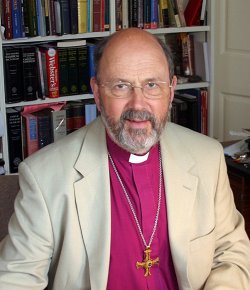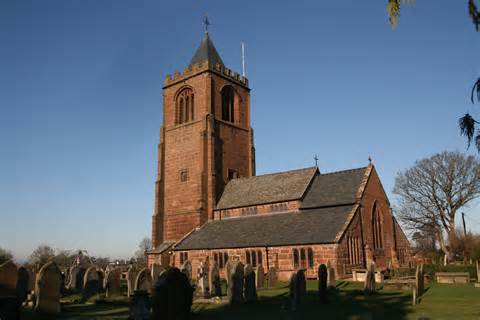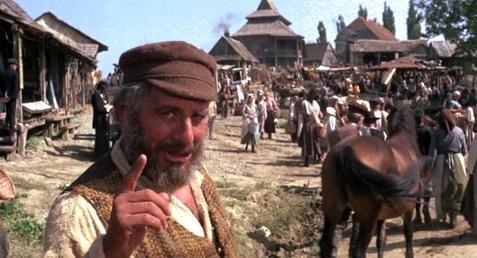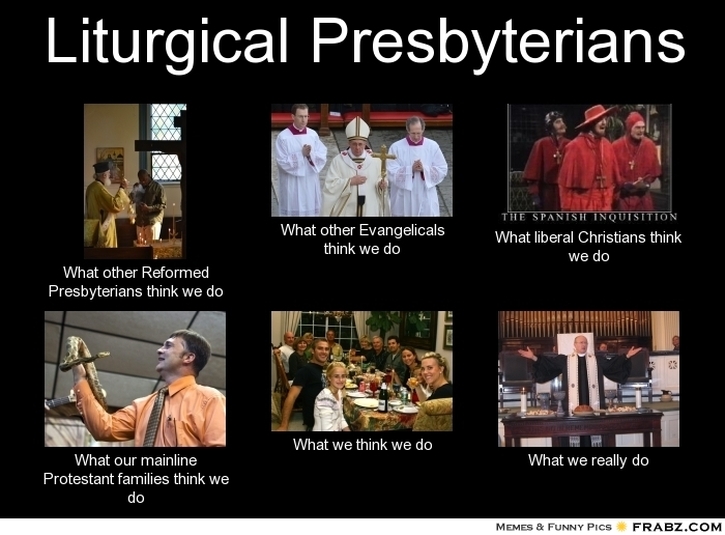The purpose of this brief essay is to address some of the recent controversies in the Reformed camp concerning the works of N.T. Wright and to provide some autobiographical information that might be helpful to the discussion. I would encourage those interested in this subject to also read a related and very helpful, longer essay written by James B. Jordan in 2005 titled “The Closing of the Calvinistic Mind”.
N.T. Wright is the retired Bishop of Durham, New Testament scholar, and prolific writer. Many in Reformed Church circles have referred to him as a “wolf in sheep’s clothing”, “dangerous man”, “purveyor of another gospel”, “heretic”, etc. Having read several of Wright’s books (my favorite is still Surprised by Hope), I am sure I would agree with some of the objections of his opponents. I do think, however, that asserting that Wright is a heretic, false prophet or wolf is unfair to this eminent contemporary evangelical Biblical scholar. With that in mind, I would like to offer some autobiographical detail to help make my point.
I was first introduced to the Reformed Faith as a senior in high school (1982-1983) by a dear friend and teacher. St. Paul saw a blinding light on the Damascus Road as he encountered the risen Lord Jesus. Augustine was told by a child’s voice to “take and read”. Luther felt as if the gates of paradise had opened to him as he re-discovered justification by faith. Wesley felt his heart “strangely warmed” as he embraced the Gospel. My enthusiastic embrace of the Doctrines of Grace was by no means as dramatic as these experiences, but it was just as paradigm-shifting to me as each. For the first time in my Christian life, the difficult passages of the Bible began to fit together and, if I may be so bold, made sense to me. My understanding continued to grow, as did my sanctification, and continues to do so even at my nearly fifty years of age. Throughout the 1980’s and into my early years as a husband and father in the 1990’s, I had serious questions about a variety of subjects, including the sacraments, paedocommunion, and corporate worship. I was blessed with a pastor who was willing to seriously engage these subjects with me, even if he might in the end disagree with some of my conclusions. There were other pastors, elders, and mature, wise men that would also engage such subjects with me during this period of my life.
Something changed, however, sometime in the early 2000’s. Subjects that before could be seriously discussed and charitably disagreed over, now seemed to bring charges of heresy or were simply just not tolerated. If I were to point to the thing that signaled this shift, I think it would be the response of a couple of men (one a prominent Presbyterian pastor in the South, the other a respected Seminary professor) to fellow pastors with whom they strongly disagreed (proponents of the so-called “Federal Vision”). Instead of charitably lodging their disagreements with these pastors, these men and their supporters resorted to labeling their opponents as heretics. Thus, they ended all possibility of discussion and debate. A heretic is someone who denies an essential of the Christian Faith, such as the Holy Trinity, the deity of Christ, the virgin birth, etc. A heretic is not someone who poses a legitimate question, offers a nuance, or presents a clarification to a particular understanding of a somewhat sectarian doctrine. It seemed at this time Reformed scholarship had entered a new “dark age” in which Reformed Christians (particularly pastors and theologians) feared to raise any objection or question any currently held understanding of covenant, sacraments, worship, etc., lest they be brought up on charges of heresy before their sessions and presbyteries. This too would affect the people in the pew (like me) that were perceptive enough of the situation to know that their teachers and preachers now had to tread very carefully as they taught and preached the Bible to avoid charges of teaching heresy.
This brings me to N.T. Wright. Whatever one thinks of Wright, his contribution to a literal reading and understanding of the Gospels’ accounts of the physical death, burial, and resurrection of Christ in a very liberal, unbelieving academic community cannot be denied. He has strongly emphasized the current cosmic nature of the reign of Christ against an evangelical culture so terribly influenced by dispensationalism. He has helped lead this same evangelical culture out of a more than two centuries old captivity to a pietism that has so limited the reign of Christ to the four walls of the church building. Is he misguided or in error in some areas? Of course. Is he a heretic? No. Like C.S. Lewis, Alexander Schmemann, Dietrich Bonhoeffer, or even John Calvin, Wright must be read with Biblical discernment. Interestingly, Lewis even questioned the authority of the imprecatory Psalms, but no one seems to be saying that his entire corpus is therefore verboten. To simply dismiss Wright’s work as heretical is to do an injustice to the man himself, as well as to greatly impoverish the modern Reformed church that desperately needs to recover its forgotten and neglected cultural voice as taught by Wright.
In summary, it is far easier to dismiss a person as a heretic and end all possibility of serious discussion and debate. It is far more difficult, yet far more edifying to the church at large, to engage this person in serious discussion and debate. So, I would encourage Wright’s detractors to continue to explore his work. Point out areas in which he may be in error. Be sure also to point out the many profound and useful insights he has made in the areas of the Kingdom of God, the necessity of Christian community as opposed to American individualism, the present and future reign of Christ, etc. But please do not resort to name-calling that seems to be the favorite pastime of so many in the Reformed camp today.
On this past swelteringly hot July Saturday afternoon, the high grass blades of my lawn beckoned me to provide them a substantial trim. No sooner had I begun this noble task than I was summoned to my fence by a most beautiful sight. Big, ripe raspberries as wild as they were red, had grown in my own little patch of God’s good earth. I immediately thought of God’s promise to His covenant people as they walked along in the wilderness preparing to enter the land of promise, that He would provide for them “…vineyards and olive trees that you did not plant…” (Dt. 6:11; Josh 24:13). I picked a bowl full of this luscious, sweet, juicy fruit to share with my family before returning to the lawn mowing task at hand. As I trudged along behind finely coiffed rows of green, I pondered the departed Edenic glory, the land of Canaan, the new heaven and earth. I considered what theologians refer to as the “already/not yet” dimensions of the Kingdom of God. As if to remind me that I still wander in the “not yet”, I unknowingly stepped on a yellow jackets’ nest beneath the surface of the ground and was stung by one these dastardly flying Philistines on my ankle.
Each Lord’s Day, as we enter the corporate worship of our Triune God, we experience with all five of our senses the delights of being in His Holy Presence. We hear, confess, and sing the glorious Gospel proclaimed in word and song. We taste, touch, smell, and see this Gospel in the Eucharistic bread and wine. As we cherish the love, fellowship, unity, and peace of the Body, we see Jesus, and, just as importantly, the world around us sees Jesus. We are tempted to think that we are in the “already”. Yet, something is still terribly amiss. We are still surrounded by Philistines and, didn’t we just confess our own sins before God as we first entered into His Presence before receiving His absolution? We fully recognize that our Lord has been busy “putting things to rights” (as N.T. Wright correctly puts it) since His resurrection from the dead on that blessed Sunday morning so long ago. We confess with the prophet that the knowledge of God will cover the earth as the waters cover the sea (Hab. 2:14). Yet, with all creation, we eagerly await the renewal of all things, the new heaven and earth, and the resurrection of the body at the return of our Lord (Romans 8:18 ff).
One evening very soon, like a thief in the night, I will go to the dwelling of these unwelcome squatters on my lawn and destroy them with fire.
But the day of the Lord will come like a thief, and then the heavens will pass away with a roar, and the heavenly bodies will be burned up and dissolved, and the earth and the works that are done on it will be exposed. Since all these things are thus to be dissolved, what sort of people ought you to be in lives of holiness and godliness, waiting for and hastening the coming of the day of God, because of which the heavens will be set on fire and dissolved, and the heavenly bodies will melt as they burn! But according to his promise we are waiting for new heavens and a new earth in which righteousness dwells. (II Peter 3:10-13)
Galatians 4:26: "But the Jerusalem above is free, and she is our mother".
As so many others before and after me, I was born into your family, composed of different nationalities, ethnicities, beautiful people, and not a few misfits. I was immediately nursed, nurtured, and bathed, receiving your life-giving Spirit. I was encouraged often, rebuked when necessary, and always taught as I grew. For as long as I can remember, I have affirmed and loudly proclaimed your family distinctives and values along with my siblings. You have always and continue to sustain me at your bountiful Table. You never seem to tire of telling me and my brothers and sisters of the love of my Father for us. Leaving you would be death itself. Loving you is life everlasting. So, on this day in which many wish their mothers "Happy Mother's Day!", I want to add my voice to theirs and let you know how much I love you! Happy Mother's Day!
If the Presbyterian and Reformed world was a piece of real estate, I have occupied a small cottage on the back forty for the past thirty plus years. Indeed it seems as if it is where I live and move and have my being. What follows is something I have observed through these years that troubles me a bit. Please permit me to step out on the front porch of my small cottage to get something off my chest, even if only the dogs, chickens, and Flannery O’Connor’s peacocks are listening.
Today is Palm Sunday and thus the beginning of the annual Holy Week cycle observed by millions of Christians the world over. There will be a large portion of the Presbyterian and Reformed world that will ignore this observance altogether, chiding the rest of us that do observe it, claiming that we are just closet Roman Catholics. These good folks are very Puritan in the non-liturgical, non-church calendar sense. There will be another portion of the P & R world that may give lip service to a Crucifixion and Easter observance, if perchance it can be used to bring “seekers” to a trendy, contemporary service, replete with rock band and casually attired worship leaders. These good folks have little care for tradition and history and are more concerned with what works to cause some aimless, hopeless souls to attend their high octane services on Sunday morning (or, ahem, Saturday night).
For as long as I can remember, I have held a deep appreciation for history and tradition. I believe that the history of the church did not begin in the 16th Century. In spite of the corruptions and accretions of the Late Medieval Church, there was a rich Biblical tradition that proceeded the Reformation that the first generation Reformers themselves sought to rescue. The Roman Catholic Church considers herself to be the “true” church, and all who protested to be heretics. The Reformers wanted to reform, not revolt. Those of us who stand with the Reformers recognize that the tradition, beauty, wonder, liturgy of the Church in the centuries prior to the arrival of a zealous Augustinian monk with hammer, nail, and 95 Theses belong more to us than to Rome. When the more Puritan types ignore the ecclesiastical calendar, the liturgical tradition, etc. that has existed since the early church; when the trendy, contemporary types use any of this tradition only as a tool to attract “seekers”, the net result is the same. Rome wins.
We simply must do better. We must become less reactionary and more actionary (is that a word?). If the reason we do not do something is simply because Rome does, maybe we should consider jettisoning the Holy Trinity and the Virgin Birth of Christ as well. I recently read an article by one of the Puritan types that complained about the encroachment of Roman Catholic practices in Presbyterian worship. One of the examples given was the use of the Agnus Dei (“O Lamb of God Who takes away the sin of the world, have mercy upon us”) because it is also used in the Roman Mass. Never mind that it is also the Gospel. Also, if the wealth bequeathed to us by faithful saints, bishops, and martyrs is only useful as one among any number of tools that can be employed to accomplish a desired end, then we’re doing it all wrong.
Much like a person who has inherited a fortune at the death of a rich uncle, we, the children of the Reformation have inherited a beautiful, Biblical liturgical and ecclesiastical tradition that has existed for centuries prior to the Reformation. The question is, what are we going to do with it? Are we going to reject it and turn it over to a cousin who arrogantly claims that it always belonged to him anyway? Or are we going to accept this great wealth, invest it, build upon it, and make it yet more glorious than ever before?
Let us pray to the Lord. Lord, have mercy. O Lord Jesus Christ, the only-begotten Son, Who are in the bosom of the Father, True God,source of life and immortality, Light of Light, Who came into the world to enlighten it: You were pleased to be conceived in the womb of the Virgin Mary for the salvation of our souls by the power of Your All-Holy Spirit. O Master, who came that we might have life more abundantly, we ask You to enlighten the minds and hearts of those blinded to the truth that life begins at conception and that the unborn in the womb are already adorned with Your image and likeness; enable us to guard, cherish and protect the lives of all those who are unable to care for themselves. For You are the Giver of Life, bringing each person from non-being into being, sealing each person with divine and infinite love. Be Merciful, O Lord, to those who, through ignorance or willfulness, affront Your divine goodness and providence through the evil act of abortion. May they, and all of us, come to the life of Your Truth and glorify You, the Giver of Life, together with Your Father, and Your All-Holy and Life-giving Spirit, now and ever and unto ages of ages. Amen. [from The Orthodox Church in America]
My wife and I finally saw The Book Thief last night. Strangely appropriate it seems that we saw this film the night before the Church draws her attention to the plight of the unborn in this nation and around the world. Nearly seventy years ago Naziism, Hitler, Mein Kampf were eradicated from the earth. Or so we think. Our nation alone has been guilty of more than eight holocausts through the murder of the unborn over the past forty-one years and growing. The liberal elite has tolerated, if not embraced, Islam which hates Jews and Christians every bit as much as proponents of the "Final Solution". Many Americans are at peace with the federal government's seizure of 1/7th of the economy through socialized health care (remember it was National Socialism). The ability of the federal government to spy on anyone at any time makes the Nazis' ability to do the same look like "tattle-taling" in kindergarten. The propaganda regime of the American mainstream media would be the envy of Joseph Goebbels (Goebbels once said, “Think of the press as a great keyboard on which the government can play.”). In going along with the ungodly worldview of the state and "culture", most of the modern church has a striking resemblance to the nazified church of the Third Reich. Much like the Confessing CToday we will unite with what is perhaps a minority, the faithful, to call on our Triune God to hear and speedily to end the legalized murder of the unborn in this land and abroad. We will enter the heavenly Throne Room with the faithful, where we will make this bold request. Our Faithful Lord will nourish us and equip us for the fight to proclaim and announce that Jesus Christ is King and Lord of all!
I found this little gem I had written in a file from Advent, 2010:
If you do not like guns, or the people that own them, you will not appreciate the experience that I will recount below. So please, do yourself (and me) a favor, and read something more to your taste. Perhaps something on global warming, since this is turning out to be the coldest winter in the past one hundred years.
At the tender age of fifteen, in the year 1980, my dad and I were invited to a neighbor’s house on a Saturday during the summer of that year. That detail would be otherwise boring were it not for the fact that our neighbor was a federal firearms dealer and collector of many handguns of various calibers, actions, and firing mechanisms. We spent an afternoon firing .22, .38, .357, and .45 caliber revolvers and semiautomatics. I was particularly drawn to his .357 Magnum revolver that I was privileged to shoot… a lot. I determined that I had to have one of my own. It was a Dan Wesson .357 with an 8-inch ventilated rib heavy barrel and zebra wood handles. I told Dad that I wanted one for Christmas. I wonder how often Santa gets requests for .357 Magnums?
Dad always had a bit of a conniving (all in good fun) manner about him, especially when it involved his only son. That of course would be me. Shortly after I presented my Christmas wish list to him, Dad informed me that due to heavy demand and backlog at the Dan Wesson plant, orders for handguns could not be filled until spring of the following year. Always way too gullible myself, I believed him without question. The ruse became even bigger. He even involved one of my teachers in this twisted web of deception. Sometime around Thanksgiving, Dad spent a Friday night and Saturday working with the dads of many of my classmates putting down new flooring that had just arrived for the school’s basketball court. During that time, he must have told my teacher, Mr. Lowe, to ask me what was going to happen next spring. When I returned to school on Monday, Mr. Lowe dutifully asked me what was going to happen next spring. How the heck would he know about that? If I had any doubt about the delayed delivery of the gun at all, my own teacher was confirming (though he did not realize it) that I would not get it for several months… not at Christmas!
The weeks went slowly by, but Christmas finally arrived. Thinking as I did that I would not receive the pistol at Christmas, Dad’s capacity for trickery still had not been exhausted. The first present he wanted me to open on Christmas Eve was a very nice gun case, just large enough for a revolver with an 8-inch barrel. It seemed to have something in it. Could it be the revol… no, it was a toy cowboy gun that shot caps! Dad just wanted to put it in the case so that I would know how the future occupant of the case would look… next spring. I’m sure I opened other packages containing standard socks and underwear until one large and heavy rectangular package remained. It seemed to be certain now… no pistol until spring… just a gun case for a cap gun! Being the thankful fifteen year old with a façade of joy, I proceeded to open this last gift wondering what other cunning display was hidden behind brightly colored Christmas paper and bows. As I tore the paper, I saw a picture on the front of a box that appeared to be… no, it couldn’t be… a revolver… Dan Wesson. Is there no end to this game? What else could he have hidden in this box? Where did he even find the box? As I raised the Styrofoam lid to this box, my eyes beheld what appeared to be the pistol that was not supposed to be ready until next spring. How did he get it shipped early? Wait a minute. Is this Candid Camera? I soon realized that for many weeks I had fallen victim to his clever, yet loving, deception.
In all fairness to my late mother, I should note that she was not as thrilled as I or my Dad about this Christmas “gift”. I guess she eventually learned to accept it. After all it is East Tennessee. We rung in Christmas that night by shooting the new pistol in the backyard and frightening my uncle and aunt next door, but that’s another matter for another time.
What is perhaps more memorable than the gift itself, is all the planning and intrigue of my loving father leading up to this very special Christmas.
Tevye: Because of our traditions, we've kept our balance for many, many years. Here in Anatevka, we have traditions for everything: how to sleep, how to eat... how to work... how to wear clothes. For instance, we always keep our heads covered, and always wear a little prayer shawl that shows our constant devotion to God. You may ask, "How did this tradition get started?" I'll tell you!
[pause]
Tevye: I don't know. But it's a tradition... and because of our traditions... Every one of us knows who he is and what God expects him to do.
-from Fiddler on the Roof What is tradition? Or better, what is Christian Tradition? The late, great church historian, Jaroslav Pelikan once wrote: “Tradition is the living faith of the dead, traditionalism is the dead faith of the living.” The Church lives with the perpetual danger of falling into dead traditionalism on the one hand and embracing the novelty of the latest fad on the other. We all can think of many of the mainline churches that (on paper at least) affirm the orthodox, Christian Faith, but in their words and actions reject that same Faith they claim to confess. Not surprisingly, these dead traditionalist churches are rapidly dying. Moving down the street we encounter what appears to be a very lively, contemporary church offering rock band with sentimental, repetitive lyrics, casual dress and atmosphere, small groups for most every demographic, and trite, warm-and-fuzzy sermons. Life may be found there, but little if any Biblical depth. Certainly no drowning hazard here. There’s no reason to doubt that these people genuinely love Jesus, but what do they know and believe about this Jesus? They usually lack grounding in the great creeds of the church and their unstructured, entertainment-driven conception of worship is indicative of a theology that really needs to mature. So, how do we navigate a course to avoid both the Scylla of dead traditionalism and the Charybdis of immature evangelicalism? The answer is likely to be found in the activity of the Third Person in the Holy Trinity. Without the Holy Spirit’s working through the means of grace (Word of God, prayer, and Sacraments), every “traditional” church will end up in dead traditionalism. Without the Holy Spirit’s showing us the vibrant Faith and Biblical teaching of saints, martyrs, and ecumenical councils, every church based primarily on feeling, casualness, and shallow teaching is likely to end up embracing all kinds of heterodox teachings and practices. One Reformed pastor stated it something like this. We need the “heat” of the “charismatic” churches and the “light” of the “traditional” churches to avoid either freezing to death or walking in darkness. Since we are seeking a definition of Christian Tradition, I would like to propose one: “Christian Tradition is the living faith of a Gospel-transformed people, on a Bible-guided journey toward the future, directed by God’s Holy Spirit who in times past moved and led prophets, Apostles, Church Fathers, reformers, martyrs, and ecumenical councils and who continues to move and lead His Church forward today.” This definition can certainly be improved by minds wiser than mine, but it is at least a step toward understanding, teaching, and maintaining a solid Christian Tradition in our day.
"Man invented cooking before he thought of nutrition. To be sure, food keeps us alive, but that is only its smallest and most temporary work. Its eternal purpose is to furnish our sensibilities against the day when we shall sit down at the heavenly banquet and see how gracious the Lord is. Nourishment is necessary only for a while; what we shall need forever is taste." (The Supper of the Lamb, Fr. Robert Farrar Capon)
At his blog, Blog and Mablog, Doug Wilson will often write about his past, all the experiences that served to lead him to a particular point in his life. I think I will do something similar on this blog from time to time. “Honor thy father and thy mother”, the Lord commanded the Israelites from a tablet of stone inscribed on a fiery mountaintop; and so I would like to honor my father and late mother in the following recollection. When I was a rising sixth grader, my parents engaged in a bit of cultural rebellion. No, not of the Woodstock-era, acid trip variety. For a rural community in 1976, they did something far more rebellious than that. They extracted me from the local government school and sent me to a (gasp!) Christian school! At that time homeschooling was unheard of, and anything but public school was unthinkable. Our new pastor’s wife at the time as much as told my mom she was crazy, noting that she would never do such a thing to her kids. In spite of the opposition from neighbors and church members alike (many of them taught in the government schools), my parents persevered. I would later graduate from this same Christian school in 1983. I’m sure I did not realize it at the time, but my parents’ act of cultural rebellion in terms of my education would provide something of a basis for the cultural rebellion I and my family have engaged in for two decades as we have homeschooled our children from their earliest days. So, here’s to my mom and dad, the original cultural rebels!
|









 RSS Feed
RSS Feed